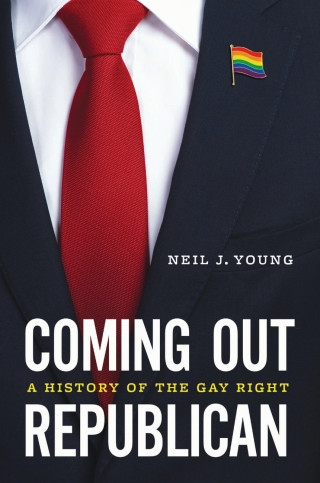This decision reflected gay Republicans’ general conservatism, part of the movement’s rightward shift in the 1990s. The HIV/AIDS crisis had been devastating for the Log Cabin clubs, killing a large portion of the original founders and members. The younger gay men who replaced them typically had grown up in Reagan-loving Republican families and retained more of their parents’ political and religious beliefs. Rather than seeing religious conservatives as strange interlopers in the Republican Party, as the gay Republicans of the 1970s and 1980s had, this new generation recognized them as their friends and family – the backbone of the party they loved. And these gay Republicans of the 1990s understood that beyond the religious right – and even the GOP – a broad swath of Americans held deep attachments to their religious faith. Working within rather than against this religiosity, gay Republicans believed, was essential to advancing LGBTQ equality, and such efforts required compassion and understanding, recognizing that many Americans had been misled by religious leaders they trusted. “Too often,” a “Reaching the Heartland” planning document argued, “negative views about gay people are based on ignorance, not anti-gay animus.”
Rich Tafel, Log Cabin’s president in the 1990s, was especially well positioned to present a different religious understanding of homosexuality. Raised in a devout Christian family in Pennsylvania, Tafel attended Harvard Divinity School, a time during which he came out as gay, and was ordained in the American Baptist Church. After briefly serving in the ministry, Tafel turned to politics, joining Republican Governor William Weld’s administration in Massachusetts before being tapped to run Log Cabin Republicans.
On political talk shows, Tafel regularly squared off against anti-gay religious leaders who he accused of selectively quoting Scripture out of context in order to condemn homosexuality. “I’m a Republican like you. I’m a Baptist like you,” Tafel said to Jerry Falwell on Larry King Live in 1992. “I wish you would stop assuming that you speak for all Christians when you say that, ‘as a Christian,’ it is wrong to be gay.”
Falwell responded that, unlike Tafel, he was a Christian who took the Bible literally. But Tafel wouldn’t budge. “No, you don’t,” he shot back. “Should slaves obey their masters? Should slaves obey their masters,” Tafel demanded Falwell answer about one of the Bible’s literal commands.
